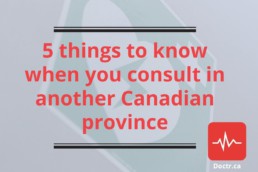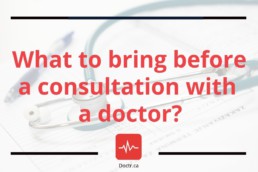4 Health Tips for Spring
Spring is now around the corner. We know you’re eager to get outside and enjoy the warmth after the long winter we’ve just had.
However, with spring comes a different set of health warnings than winter. So here are 4 tips on how to enjoy the warm sunny days as healthy as possible.
Don’t get bitten by insects
Bugs aren’t something that you worry about during the winter. But as soon as the weather starts to warm up, they come out to play. Other than wasps and bees that can sting and cause a reaction in people who are allergic, mosquitoes will start being active. Mosquito bites, if scratched, can get infected and need medical attention. So wear long sleeves as much as you can, and make sure to use bug sprays to protect yourself when you’re outside, especially if before dawn and after dusk.
Be care of your muscles
It’s certainly nice to get out more after the winter chill has passed, and it’s certainly healthy to be outside and be active. But your body is not used to the more active lifestyle you’re wishing to get yourself into. It will take some adjustments after a winter of mostly staying indoors. Make sure to stretch your body even if just for briefly, before and after an outdoor activity, so that you don’t get any cramps or stiff joints.
Wear sun protection
Spring has more hours of daylight than winter, and it also gets warmer. So many of us will start to spend more time outdoors. This will lead to an increased sun exposure than you’re used to, and that can lead to skin damage. Also, after a long winter you might not be used to putting on sunscreen and protecting your screen. So make sure to get back into it. Regularly moisturize your skin, and wear sunscreen with SPF 15 or higher. A pair of sunglasses and a hat also helps!
Watch out for hay fever
Finally, spring means that there is going to be a lot of pollen from tress in the air. And with pollen, comes hay fever. Also known as seasonal rhinitis, hay fever is an allergic reaction caused by exposure to pollen. 1 in 8 people suffer from hay fever in Quebec, and symptoms may include asthma, irritation of the eyes, sneezing, headaches, and more.
There are some over-the-counter medications available relieve the allergic reactions of hay fever. However, do consult a health professional prior to using medication, such as a pharmacist.
Read more about hay fever at the Health Wellness portal from the Government of Quebec.
Prepare your next sample
You had a consultation with a doctor who prescribed a sample to you. Sample are a common extraction of fluids for a laboratory analysis. This article shows you where you can go take it, and the procedure to follow.
Sample collection form request
When your health professional will explain that you will need a sample test, he will certainly give you a sample collection form request. It is a paper detailing the necessary tests to be completed, whether it is blood, urine or stool test.
Before taking the sample
You may have to follow some preparatory procedures for your sample the day before or a few hours before the test. Several blood samplings must be made fasten, so make sure you read carefully your form request. It is also possible to discuss the matter with your Doctor or to contact 811 in case of doubt. You can still drink water before, it is even recommended. However, do not take your medication the morning of the test, unless your health professional says otherwise.
Choice of places with a sample service
You have access to a plurality of places that offers that service. First you have CLSC’s that propose this service free of charge when you present your Health Insurance Card. Blood tests can also be taken in some pharmacies with charges. You can also go with private companies that offers laboratory analysis services and with the companies that do sampling at home. Private or with charges services are often the ones with the less waiting time.
What you must bring the day of the sample collection?
When you will go for your tests, be sure to have with you your sample collection form request and your Health Insurance Card to be sure to have the service free of charge where it is possible.
They will provide the sampling container needed at your arrival. In some cases, you can ask for a sampling container and make it home before bringing it back. This applies to urine samplings. However, you must keep the sample fresh and provide it the morning you give it for analysis.
Samples are not a procedure for witch you should worried. If you have issues facing the pain or a fear of needles, speak to your doctor or to a pharmacist. There is a cream that desensitizes the area before the sampling. It is available at the desk of pharmacies after a discussion with the health professional.
5 things to know when you consult in another Canadian province
Your taking vacation out of the Quebec province and you have prepared weeks in advance. However, some contingencies are uncontrollable. If, during a trip you need health care, you’ll be more informed with this list.
1. Your health insurance card should be following you everywhere.
If you go in a clinic or to the office of a health professional, present right away your health insurance card. Some professionals accept the card, so you can receive the needed treatments without having anything to pay. They are directly remunerated by the Quebec Health Insurance Plan (RAMQ) with whom they sometimes take agreements. For hospitals, there’s an interprovince agreement which gives you the access to the same measures as in Quebec with the public plan card.
2. keep all your receipts.
In the case where your health insurance card is of no use when you need healthcare, you will need some documents. Be sure to have the originals of the receipts you will get. If you make payments with your credit card, keep a copy of the payment slip. When it is made by paycheck, save a picture of each sides of it with the professional’s or the establishment name. In brief, keep all the documents that details the interventions, the received services and their price. This will give you the opportunity to reclaim them to the RAMQ.
3. Get inform on your coverage.
The health insurance card does not cover every charge you could have in a health-related incident. It is giving you the same limited coverage as in Quebec. You are only covered with the doctors, dentists and optometrists. Any other healthcare is not insured and what is covered is in the precise beacons and in the same fees as in Quebec. If you spend more, the fees are at your charge.
4. Do not forget about your medication.
If you take prescribed medication, bring enough for the duration of your trip. You can consult your pharmacist before your leaving to obtain the needed quantity for period of your absence. Medicines, prescribed or not, bought out of the province of Quebec, is not covered by the Quebec Health Insurance Plan.
5. Prevent the worse.
Before leaving, get a private insurance. You will be more reassured that you will not have surprise fees that you will have to pay on the spot. Or else you could at least get them reimbursed quickly.
What to bring before a consultation with a doctor?
You succeed in getting an appointment with a doctor for a consultation. Better be well prepared and have in hands the necessary so everything can go smoothly. Here is a guide to help you to be organize and to maximize your consultation time.
Manage the waiting time
Even if you have booked an appointment with a doctor, whatever if he’s practicing in a clinic or in a hospital, you will almost certainly have to wait. The first thing you should bring is something to keep you busy in the waiting room. A good book is often good company in those times and it’s easy to carry. If you are with a child or a baby, do not forget diapers, milk or snacks and one or two games.
Items to bring
Besides taking a book with you to the consultation, there’s several objects your doctor or his desk would need. In the case where your appointment is at a hospital, bring your establishment card so they can retrieve your file. If you do not already have one, at your venue the admission will surely produce you one.
To be able to help you well, your doctor needs to know as much as possible your habits and your medical history to date. The clearer the better, so you should have with you an update list of your medication. You can get that from your pharmacist. It will give a more complete view of your situation for the consultation.
If you have one, your vaccination booklet can be useful. It is particularly practical for people that get vaccines regularly, like big travelers. The vaccination booklet records a list of vaccines you have got, but also have the dates. Those info makes the needed subsequent vaccines easier to detect.
The most important item you should carry with you for your appointment is, obviously, your Health Insurance Card! It is the first thing they will ask you to give when you get to your appointment. That card is the one giving you a free access to health services.
In recapitulation, for your consultation, you will need something to keep you busy, your hospital card if needed, a to date list of your medication, your vaccination booklet and, above all, your Health Insurance Card.

